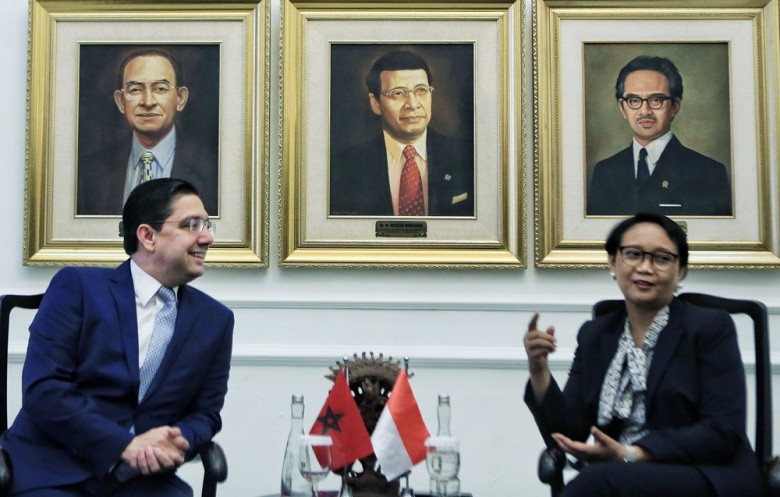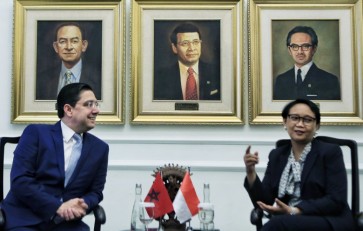Popular Reads
Top Results
Can't find what you're looking for?
View all search resultsPopular Reads
Top Results
Can't find what you're looking for?
View all search resultsDefining foreign policy matters
Defining a country’s foreign policy is definitely not an easy feat. Nevertheless, it is of great importance. The public must not be left stranded in no man’s land, not knowing how to define its own government’s foreign policy or understand its intentions. Allowing this to happen, and fostering participatory diplomacy or grassroots diplomacy would be increasingly challenging.
Change text size
Gift Premium Articles
to Anyone
I
t goes without saying, the President has always been an admirer of economic growth. Thus, it came to no one’s surprise when he outlined his priorities in economics during his inauguration speech and once again in his short remarks while introducing the new Cabinet. The President has always been straightforward and consistent with his vision, yet as this new administration’s priorities will be the continuity and reiteration of the previous, questions arise on whether or not Indonesia’s foreign policy will be.
In the past five years, under the leadership of Retno LP Marsudi, the Foreign Ministry crafted the “down-to-earth” diplomacy, or diplomacy for the people. The premise is simple and sincere: to prioritize all kinds of foreign policy that would benefit the people. Thus, foreign policy is defined as a means at an international level to assist the delivery of national interests — including economic diplomacy.
Yet this does not significantly answer the questions on Indonesia’s role on the international stage, as all forms of diplomacy, by nature, is administered for the sake of the national interest of a country, which in turn, is for the people.
Moreover, in the past half-decade, the down-to-earth approach seems too modest for the new administration, as Indonesia’s achievements were nothing short of prestigious: the country experienced back-to-back success in the United Nations Security Council and the UN Human Rights Commission election; the initiative in the Indo-Pacific Outlook received great acclamation; and recently, the government launched the Indonesian Agency for International Development to promote overseas aid programs for peace and prosperity. These achievements alone indicate that the country’s foreign policy is much more than what it has defined it to be.
Defining a country’s foreign policy is definitely not an easy feat. Nevertheless, it is of great importance. The public must not be left stranded in no man’s land, not knowing how to define its own government’s foreign policy or understand its intentions. Allowing this to happen, and fostering participatory diplomacy or grassroots diplomacy would be increasingly challenging.
Thus, to define foreign policy, it is first imperative to identify two factors that come into play. One, how the country perceives the world and two, how the country acts or interacts in the state of this perceived world. Amid a cold war that divided the world in two, Mohammad Hatta articulated the term “rowing between two reefs”, calling on the nation not to feel pressured to pick either side. Hatta said there was a third option: for Indonesia to pick no side, to be independent on its own.
While under his two-period administration, sixth president Susilo Bambang Yudhoyono (SBY) introduced the concept of “navigating in a turbulent ocean”. He described the world as filled with undergoing struggles and made a primary focus on stability amid the global turbulence. The true nature of his administration’s foreign policy was then showcased: meticulous, careful, although at times depicted as hesitant.


















